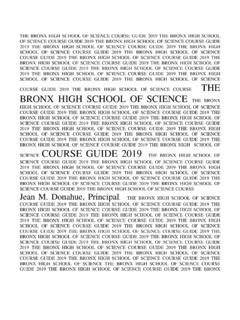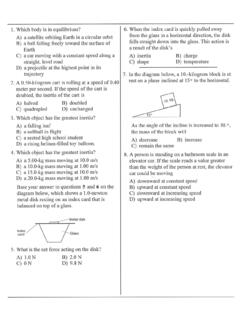Transcription of Copyright Notice
1 Copyright Notice Staff and students of Birkbeck College are reminded that Copyright subsists in this extract and the work from which it is taken. This Digital Copy has been made under the terms of a CLA licence which allows you to: access and download a copy; print out a copy. This Digital Copy and any digital or printed copy supplied to or made by you under the terms of this Licence are for use in connection with this Course of Study. You may retain such copies after the end of the course, but strictly for your own personal use. All copies (including electronic copies) shall include this Copyright Notice and shall be destroyed and/or deleted if and when required by Birkbeck College. Except as provided for by Copyright law, no further copying, storage or distribution (including by e-mail) is permitted without the consent of the Copyright holder. The author (which term includes artists and other visual creators) has moral rights in the work and neither staff nor students may cause, or permit, the distortion, mutilation or other modification of the work, or any other derogatory treatment of it, which would be prejudicial to the honour or reputation of the author.
2 Course of study: POSO004 Name of designated person authorising scanning: Philip Payne (Librarian) Title: Anarchy and the struggle for power Name of author(s): Mearsheimer, J. J. Name of publisher: W W Norton and Co. Full citation: Mearsheimer, J. J. (2001). Anarchy and the struggle for power. In: The tragedy of great power politics. New York and London: W W Norton & Company. pp 29-54 The Tragedy of Great Power Politics JOHN J. MEARSHEIMER University of Chicago W. W. NORTON & COMPANY NEW YORK LONDON TWO Anarchy and the Struggle for Power reat powers, I argue, are always searching for opportunities to gain power over their rivals, with hegemony as their final goal. This perspective does not allow for status quo powers, except for the unusual state that achieves preponderance. Instead, the system is pop- ulated with great powers that have revisionist intentions at their core.' This chapter presents a theory that explains this competition for power. Specifically, I attempt to show that there is a compelling logic behind my claim that great powers seek to maximize their share of world power.
3 I do not, however, test offensive realism against the historical record in this chapter. That important task is reserved for later chapters. WHY STATES PURSUE POWER M y explanation for why great powers vie with each other for power and strive for hegemony is derived from five assumptions about the international system. None of these assumptions alone mandates that states behave competitively. Taken together, however, they depict a world in which states have considerable reason to think and sometimes behave aggressively. In particular, the system encourages states to look for oppor- tunities to maximize their power vis-A-vis other states. 30 THE TRAPEDY OF GREAT POWER POLITICS How important is it that these assumptions be realistic? Some social sci- entists argue that the assumptions that underpin a theory need not con- form to reality. Indeed, the economist Milton Friedman maintains that the best theories "will be found to have assumptions that are wildly inaccu- rate descriptive representations of reality, and, in general, the more signif- icant the theory, the more unrealistic the assumptions.
4 "2 According to this view, the explanatory power of a theory is all that matters. If unrealistic assumptions lead to a theory that tells us a lot about how the world works, it is of no importance whether the underlying assumptions are realistic or not. I reject this view. Although I agree that explanatory power is the ulti- mate criterion for assessing theories, I also believe that a theory based on unrealistic or false assumptions will not explain much about how the world Sound theories are based on sound assumptions. Accordingly, each of these five assumptions is a reasonably accurate representation of an important aspect of life in the international system. Bedrock Assumptions The first assumption is that the international system is anarchic, which does not mean that it is chaotic or riven by disorder. It is easy to draw that conclusion, since realism depicts a world characterized by security compe- tition and war. By itself, however, the realist notion of anarchy has noth- ing to do with conflict; it is an ordering principle, which says that the system comprises independent states that have no central authority above Sovereignty, in other words, inheres in states because there is no higher ruling body in the international ~ystem.
5 ~ There is no "government over government^."^ The second assumption is that great powers inherently possess some offensive military capability, which gives them the wherewithal to hurt and possibly destroy each other. States are potentially dangerous to each other, although some states have more military might than others and are therefore more dangerous. A state's military power is usually identified with the particular weaponry at its disposal, although even if there were Anarchy and the Struggle for Power 31 no weapons, the individuals in those states could still use their feet and hands to attack the population of another state. After all, for every neck, there are two hands to choke it. The third assumption is that states can never be certain about other states' intentions. Specifically, no state can be sure that another state will not use its offensive military capability to attack the first state. This is not to say that states necessarily have hostile intentions.
6 Indeed, all of the states in the system may be reliably benign, but it is impossible to be sure of that judgment because intentions are impossible to divine with 100 percent cer- taint^.^ There are many possible causes of aggression, and no state can be sure that another state is not motivated by one of Furthermore, intentions can change quickly, so a state's intentions can be benign one day and hostile the next. Uncertainty about intentions is unavoidable, which means that states can never be sure that other states do not have offensive intentions to go along with their offensive capabilities. The fourth assumption is that survival is the primary goal of great pow- ers. Specifically, states seek to maintain their territorial integrity and the autonomy of their domestic political order. Survival dominates other motives because, once a state is conquered, it is unlikely to be in a posi- tion to pursue other aims. Soviet leader Josef Stalin put the point well during a war scare in 1927: "We can and must build socialism in the [Soviet Union].
7 But in order to do so we first of all have to e~ist."~ States can and do pursue other goals, of course, but security is their most impor- tant objective. The fifth assumption is that great powers are rational actors. They are aware of their external environment and they think strategically about how to survive in it. In particular, they consider the preferences of other states and how their own behavior is likely to affect the behavior of those other states, and how the behavior of those other states is likely to affect their own strategy for survival. Moreover, states pay attention to the long term as well as the immediate consequences of their actions. As emphasized, none of these assumptions alone dictates that great powers as a general rule should behave aggressively toward each other. There is surely the possibility that some state might have hostile intentions, 32 THE TRAGEDY OF GREAT POWER POLITICS but the only assumption dealing with a specific motive that is common to all states says that their principal objective is to survive, which by itself is a rather harmless goal.
8 Nevertheless, when the five assumptions are married together, they create powerful incentives for great powers to think and act offensively with regard to each other. In particular, three general patterns of behavior result: fear, self-help, and power maximization. State Behavior Great powers fear each other. They regard each other with suspicion, and they worry that war might be in the offing. They anticipate danger. There is little room for trust among states. For sure, the level of fear varies across time and space, but it cannot be reduced to a trivial level. From the per- spective of any one great power, all other great powers are potential ene- mies. This point is illustrated by the reaction of the United Kingdom and France to German reunification at the end of the Cold War. Despite the fact that these three states had been close allies for almost forty-five years, both the United Kingdom and France immediately began worrying about the potential dangers of a united The basis of this fear is that in a world where great powers have the capability to attack each other and might have the motive to do so, any state bent on survival must be at least suspicious of other states and reluc- tant to trust them.
9 Add to this the "911" problem-the absence of a cen- tral authority to which a threatened state can turn for help-and states have even greater incentive to fear each other. Moreover, there is no mechanism, other than the possible self-interest of third parties, for pun- ishing an aggressor. Because it is sometimes difficult to deter potential aggressors, states have ample reason not to trust other states and to be prepared for war with them. The possible consequences of falling victim to aggression further ampli- fy the importance of fear as a motivating force in world politics. Great pow- ers do not compete with each other as if international politics were merely an economic marketplace. Political competition among states is a much more dangerous business than mere economic intercourse; the former can Anarchy and the Struggle for Power 33 lead to war, and war often means mass killing on the battlefield as well as mass murder of civilians. In extreme cases, war can even lead to the destruction of states.
10 The horrible consequences of war sometimes cause states to view each other not just as competitors, but as potentially deadly enemies. Political antagonism, in short, tends to be intense, because the stakes are great. States in the international system also aim to guarantee their own sur- vival. Because other states are potential threats, and because there is no higher authority to come to their rescue when they dial 911, states can- not depend on others for their own security. Each state tends to see itself as vulnerable and alone, and therefore it aims to provide for its own sur- vival. In international politics, God helps those who help themselves. This emphasis on self-help does not preclude states from forming alliances. l l But alliances are only temporary marriages of convenience: today's alliance partner might be tomorrow's enemy , and today's enemy might be tomorrow's alliance partner. For example, the United States fought with China and the Soviet Union against Germany and Japan in World War 11, but soon thereafter flip-flopped enemies and partners and allied with West Germany and Japan against China and the Soviet Union during the Cold War.








